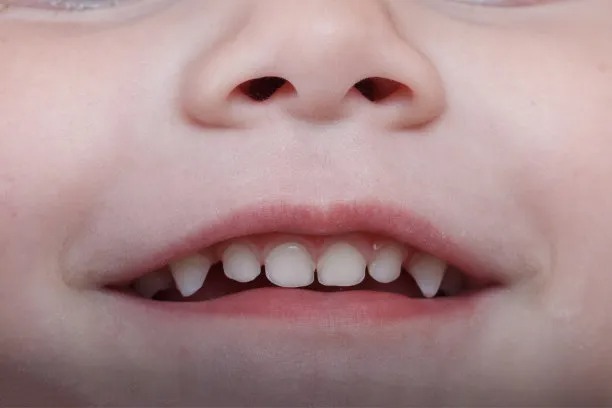Summary: Achieving optimal oral health after a dental filling involves understanding the procedure, recovery, and maintenance. Patients should prioritize finding a reputable dentist, preparing adequately, following post-filling care instructions, and scheduling regular check-ups. This article outlines essential tips and precautions to ensure a successful dental filling experience that will promote long-lasting oral health.
1. Choosing the Right Dentist for Your Filling

Your choice of dentist plays a crucial role in the success of your dental filling experience. It is advisable to seek out a dentist who specializes in restorative dentistry or has a good reputation in your community. Reading online reviews and asking for recommendations from friends and family can help you find a suitable professional.
Moreover, ensure that your dentist uses modern techniques and materials. Advances in dental technology have brought about superior filling materials that are more durable and aesthetically pleasing. You may also want to schedule an initial consultation to gauge the dentist’s professionalism and approach to patient care.
Don’t hesitate to ask your dentist questions about the procedure. Understanding the steps involved can help reduce anxiety and allow you to feel more comfortable about the treatment ahead. This creates a collaborative environment where you can actively participate in your oral health journey.
2. Preparing for Your Dental Filling Appointment
Preparation is key to a successful dental filling experience. Start by making a list of any medications you are taking and share this information with your dentist. Some medications can affect how your body reacts to dental treatments, including anesthesia.
Another important step is to maintain good oral hygiene leading up to your appointment. Brushing, flossing, and rinsing with an antibacterial mouthwash can help minimize bacteria in your mouth, reducing any potential complications during the procedure.
It is also advisable to avoid consuming alcohol or caffeine the day before your appointment. These substances can influence your anxiety levels and may lead to an uncomfortable experience during the filling process. Prioritizing rest the night before can also help you feel more relaxed during the treatment.
3. Following Post-Filling Care Instructions
After receiving your dental filling, following post-care instructions is essential for ensuring the longevity of the filling and your oral health. One of the immediate recommendations is to avoid eating for at least a few hours, especially if local anesthesia was used. This helps prevent accidental biting of the tongue or cheek.
In the days following the procedure, monitor the filled tooth for any sensitivity to hot or cold food and beverages. It is normal to experience slight discomfort, but if it persists or worsens, you should contact your dentist. They may need to adjust the filling to ensure a proper fit.
Additionally, maintain good oral hygiene by continuing to brush and floss gently around the filled tooth. Regular brushing will help stave off decay and prolong the lifetime of the filling. You may also want to use a fluoride toothpaste to provide extra protection against cavities.
4. Scheduling Regular Check-Ups for Oral Health
Regular dental check-ups are vital in the maintenance of your oral health, especially after a filling. Typically, patients are encouraged to visit their dentist every six months for a professional cleaning and examination. This allows the dentist to monitor the condition of the filling and your overall dental health.
During these check-ups, your dentist can identify potential issues before they become serious problems. For instance, they may spot early signs of decay around the filling or changes in your bite that may require attention. Early intervention can save you time, money, and discomfort in the long run.
Additionally, these visits provide an opportunity for your dentist to address any concerns you may have regarding your fillings or other dental treatments. Open communication is important in maintaining a proactive approach to your oral health, ensuring that you remain informed about any recommended treatments.
Summary:
In summary, ensuring a successful dental filling experience hinges on careful preparation, a thorough understanding of the aftercare, and the importance of ongoing dental appointments. By emphasizing these aspects, youll set yourself up for a durable and healthy outcome, safeguarding your oral health for years to come.
This article is compiled by Vickong Dental and the content is for reference only.
Vickong Dental
Vickong Dental is a large medical group established in Hong Kong in 2008 by professors from well-known medical universities in Guangdong and Hong Kong, as well as medical doctors from key national '985' universities (including Master's supervisors and senior professors). The chain of branches brings together expert dentists with PhDs and Master's degrees from Hong Kong and Mainland China, committed to providing high-quality dental treatment.
"Vickong Dental Practices the University Motto of 'Healing and Serving Society,' with a Stable Operation for Sixteen Years. It Has Been honored with Hong Kong Enterprise Leaders's Choice,' and is a Global Trusted Implant Center for the Nobel Implant System. Recommended by Hong Kong Metro Broadcast and Guangdong Television, it Serves Customers from Over Thirty Countries and Regions, Gaining the Trust and Favor of Citizens from the Guangdong-Hong Kong-Macau Greater Bay Area and Surrounding Cities.

Thousands of customers' unanimous praise
The most recognized and highly recommended dental service by customers in the Guangdong-Hong Kong-Macau Greater Bay Area
We Ensure You Receive Detailed Care and Attention Here
Hong Kong standards, Shenzhen prices, Your Trusted English-speaking dentists

Vickong Dental Medical-Grade Instrument Disinfection Process
Vickong Dental Medical-Grade Instrument Disinfection Process

Vickong Dental Chain: A Warm and Comfortable Environment for Treatment






Appointment Hours

Q&A
Why choose Vickong Dental?
Vickong Dental practices the university motto 「Medicine to Benefit Society」, with each branch bringing together highly qualified dentists with doctoral and master’s degrees from Hong Kong and the Mainland, and has maintained seventeen years of steady operation。Recipient of 「2024 Hong Kong Enterprise Leaders Brand」, 「2025 Hong Kong Enterprise Leaders Brand」, a Nobel Biocare Global Trusted Implant Center, and a brand recommended by Metro Radio Hong Kong and Guangdong TV。
To date, we have served customers from more than thirty countries and regions,earning exceptionally high word-of-mouth recognition and trusted recommendations from residents across the Guangdong-Hong Kong-Macao Greater Bay Area and surrounding cities
We have eight major branches in Zhuhai、Shenzhen,and a consultation and service assurance center in Hong Kong,so you can book a free consultation at any time for any questions,which is very reassuring.
If I do not accept the quotation after the CT scan, will I be charged??
No! As long as the actual treatment has not started, you will not be charged any fees.
Will there be any additional charges during the treatment process?
No, there won’t be any additional charges. Before treatment begins, we will clearly explain the treatment plan and its corresponding fees. Only after the patient agrees and signs the consent form will we proceed with the dental service.
Can I pay in Hong Kong dollars?
Yes. Vickong Dental accepts payment in Hong Kong dollars. The amount will be converted based on the exchange rate of the day, and the applicable rate will be clearly communicated to you in advance.
Can I reschedule my appointment at any time?
Yes. Please contact us via **WeChat** or **WhatsApp** as early as possible, providing your original appointment time and details, along with your preferred new date and time slot for rescheduling.













